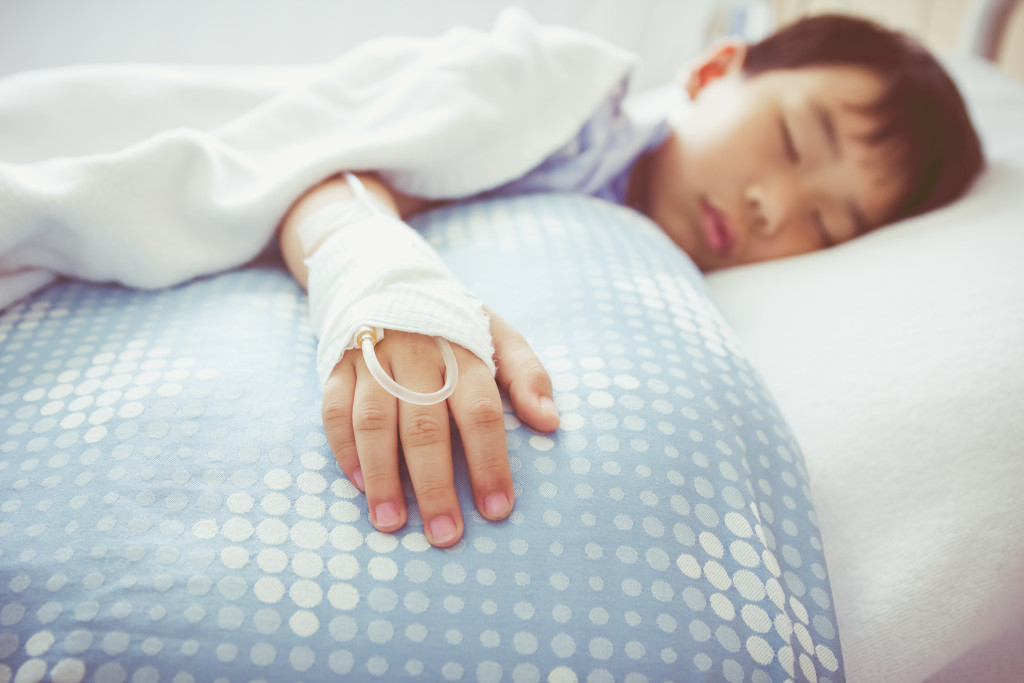Healthcare-related infections increased during the past year as a result of the COVID-19 pandemic. These infections can cause severe illnesses, increase healthcare costs, and even result in death. Fortunately, they can be controlled through simple and effective guidelines not only in hospitals but in all kinds of healthcare facilities.
Here are some important infection control measures for every medical facility:
Disinfect and Keep Surfaces Clean
All medical facilities should maintain a safe environment by cleaning and disinfecting all surfaces thoroughly. Use bleach-based cleansers in the nurses’ station and waiting areas to avoid transmission of infections between staff and patients.
Floors are one of the main hotspots for dangerous microorganisms and pathogens, so it’s important to maintain regular cleaning and sanitation. Invest in durable flooring solutions for pharmaceutical and healthcare settings to prevent the buildup of mold and bacteria.
Here are some commonly used cleaning methods in the healthcare environment:
- Enhanced Cleaning: Enhanced routine cleaning is the cleaning and disinfection of frequently touched surfaces like door handles, bed tables, and sinks. If there is an infection outbreak, it’s recommended to do enhanced cleaning twice daily.
- Routine General Cleaning: Routine cleaning is done every day using disinfectants like chlorine dioxide solutions. This will help stop the spread of germs, harmful pathogens, and viruses that can cause sickness and disease.
- Terminal Cleaning: This is the thorough cleaning and disinfection of all surfaces and equipment following a patient transfer or discharge or an increased incidence of infection in the facility.

Provide Infection Control Education
Your organization should provide continuous education on infection control such as bloodborne and airborne pathogens training. This will help your staff learn essential information about the identification of common viruses and infections and how to avoid them from spreading.
Implement the Use of Personal Protective Equipment
The use of Personal Protective Equipment (PPE) is highly important especially during this pandemic as it’s one of the most effective ways to stop the spread of the COVID-19 virus. Healthcare personnel uses it to protect themselves against bacterial and viral contaminants and prevent illnesses.
Here are some commonly used PPEs in healthcare:
- Medical Face Masks: Face masks prevent the spread and transmission of respiratory infections and bacteria. They also reduce the exposure of your respiratory secretions to other people.
- Gloves: Gloves can help minimize dermal exposures to biological hazards and chemicals. They should be replaced regularly as they are not resistant to all chemicals, and they degrade over time.
- Full-body Suits: Lab coats should be worn in clinical or laboratory areas to protect the wearer from incidental contact when handling blood, clinical specimens, and other potentially infectious materials. Hazmat suits are whole-body protective clothing used to protect healthcare workers against toxic materials and substances such as chemical agents and gases. These suits are essential to use in certain hazardous situations for optimal protection.
- Goggles: Properly fitted goggles can protect the eyes against sprays, splashes, and respiratory droplets. Various size options are available for different healthcare workers, and they feature better airflow and peripheral vision.
Conduct Safe Medical Waste Disposal
Different types of medical waste such as domestic or everyday waste, contaminated, and high-risk hazardous waste should be properly separated and disposed of as they can spread infectious diseases and impact our community, wildlife, and water supply.
One of the common methods of getting rid of medical waste is incineration. It’s the process of burning medical waste in a controlled environment and preventing it from heading to landfills. Due to concerns regarding damage to air quality and pollution, some states do not allow incineration, and other state regulations mandate off-site incineration instead.
Another waste disposal method is autoclaving. It uses high-pressure steam to sterilize some types of medical waste to kill microorganisms. It’s also used to sterilize medical equipment and destroy germs and bacteria.
Maintain Proper Hand Hygiene
Proper handwashing should be a top priority at every healthcare facility as it’s one of the most effective ways to prevent infections. Healthcare workers should always wash their hands with soap and water for these indications:
- Before and after touching a patient or other surfaces in the room
- After removing gloves or other PPE
- After contact with body fluids, blood, or other contaminated surfaces
- Before performing any aseptic task or handling medical devices
- After using the restroom
When properly implemented, supported, and accomplished, these strategies can help medical organizations avoid the spread of deadly infections. Everyone’s cooperation is needed especially during these times, so follow proper infection control guidelines to reduce health risks among your patients and staff.

